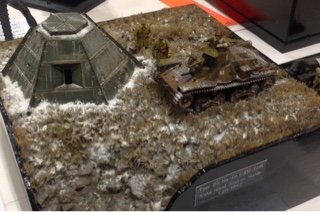The setting is an alternative history of WW2. The British army is trapped and destroyed at Dunkirk and so Britain sues for peace, leaving the Germans to dominate mainland Europe. They also take over European colonies in Africa and exploit them economically. However, the British colonies are still there as well as resistance forces.
This book takes the story to 1953. It has the same core characters in Burton and Hochburg, the senior Nazi official in Africa. Burton ends up in Madagascar looking for his Jewish lover, who has been sent there by her British secret service husband when he discovers the affair. The Nazis have deported most European Jews there.
There actually was such a plan, devised by Eichmann in 1938 and revised in 1940 after the fall of France made the colony available for this purpose. However, the plan leaked out and was dropped in favour of what became the 'final solution'.
I won't spoil the story, but this volume is a little less frenetic than the first, building more of the context around the action. It is well written and a great read. Alternative history at its best - fiction, but with a credible historical basis. The author is working on the final book in the trilogy, so I will look forward to that.
I mused after reading the first volume on the wargame possibilities. This time I gave it a go, based on the conflict between British and German armoured battlegroups on the Rhodesian border. Centurions for the British and Tigers for the Germans. I used Cold War Commander rules, but you could just as easily use WW2 rules. The figures are 1/200th or 10mm.
The British moved quickly to capture the village, but came under fire from Tigers on the hill. British artillery was effective in destroying the German infantry and the game resulted in a stalemate. The next book in the series will include an open war, with the American's joining in. So that should give an opportunity to try this again.
On the subject of micro-armour, I have been painting some reinforcements for my modern Turkish army in 1/300th. These are painted to represent the Turkish ACV 15 armoured infantry fighting vehicles - recently seen on our news screens, deployed in Syria. They are a licensed version of the US AICV. The models are the nearest I could find - the Dutch YPR-765 from H&R.





















